We’ve all been there. Someone asks for a tiny favor, and before you know it, you’re basically running a daycare, a taxi service, and a personal assistant all rolled into one. However, when the favor comes with a side of guilt and family drama, things can get spicy.
This is exactly what happened to today’s Original Poster (OP), who works for her father’s longstanding electrical company. She found herself in an unexpected and increasingly tense position when she was asked to watch her niece every weekday after school, indefinitely. On top of that, her refusal led to family disappointment, and even an ultimatum from her brother-in-law.
More info: Reddit
One of the trickiest parts of family dynamics is when relatives feel entitled to your time, energy, or resources simply because you’re related

Image credits: user6699736 / Freepik (not the actual photo)
The author’s brother-in-law began dropping off his daughter at her office after school, turning a one-time favor into a daily expectation
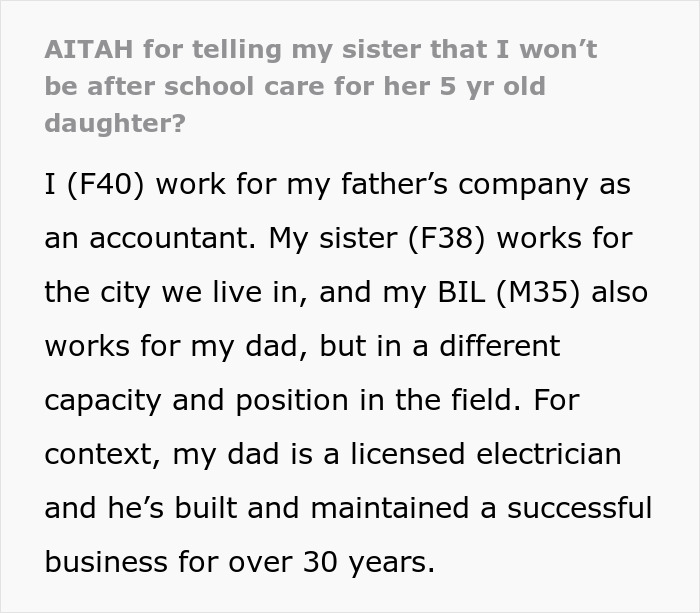
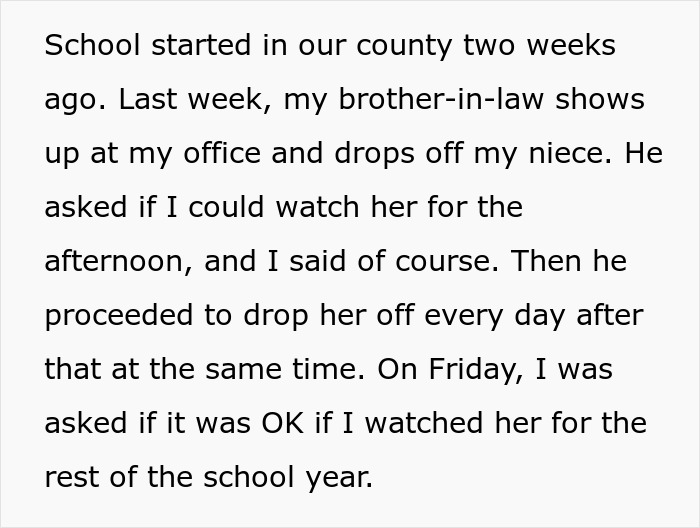
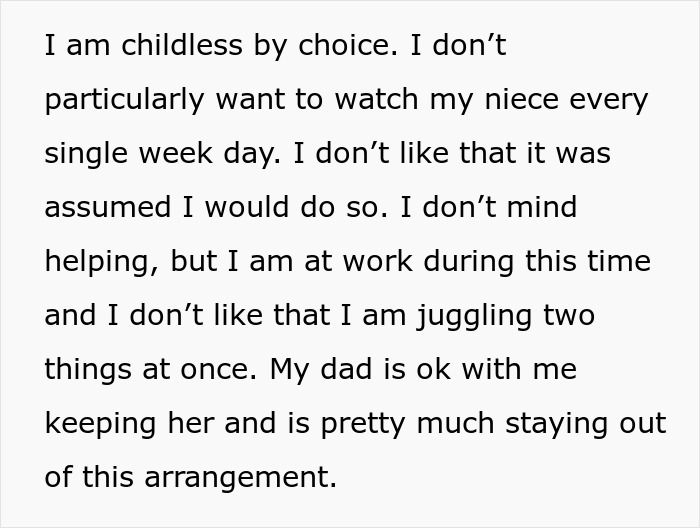
Image credits: Strange-Teacher9653

Image credits: prostooleh / Freepik (not the actual photo)
By the end of the week, he asked her to take care of the child for the entire school year, assuming she would agree

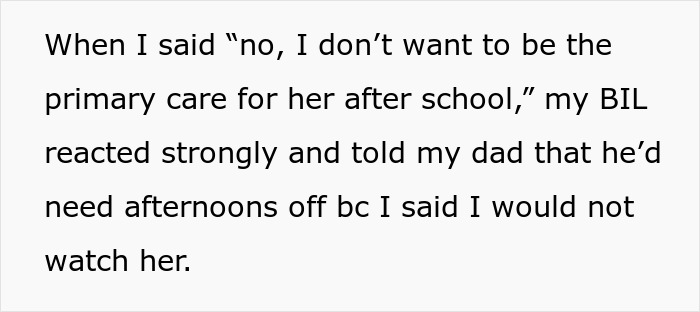




Image credits: Strange-Teacher9653

Image credits: aimenda123 / Freepik (not the actual photo)
Childfree by choice, she refused, which caused conflict with her brother-in-law while her father initially stayed neutral
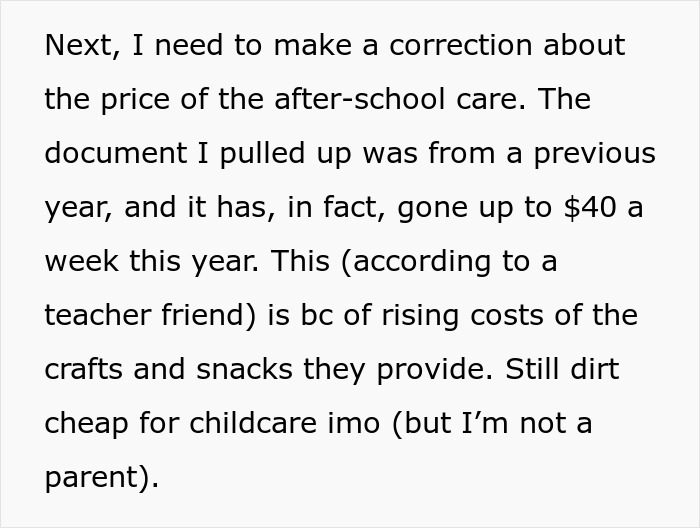
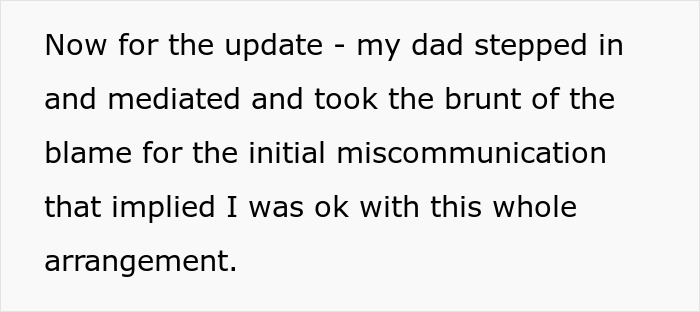
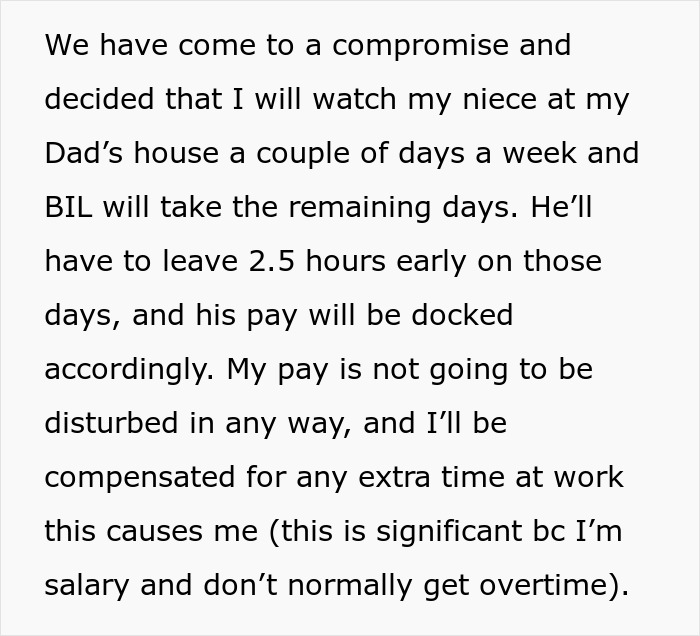
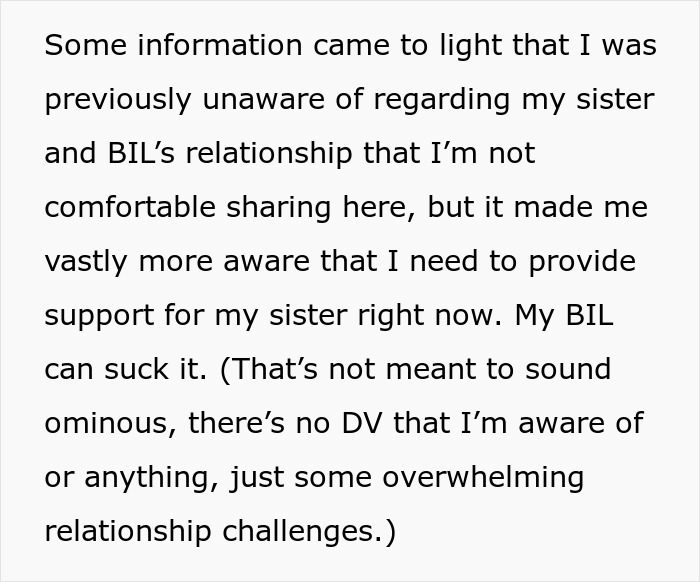


Image credits: Strange-Teacher9653
In an update, her dad mediated, leading to a compromise where childcare duties were split fairly, and her boundaries were respected
At first, it seemed simple enough. The OP’s brother-in-law asked if she could watch her niece for the afternoon, and she happily agreed. However, he started showing up every day, dropping his daughter off until he suggested she just take on the responsibility for the rest of the school year.
Now, the OP is childfree by choice. She didn’t mind helping out now and then, but becoming the full-time caregiver for her niece during work hours wasn’t something she signed up for. Her dad stayed neutral at first, while her brother-in-law escalated the situation by saying he’d need afternoons off if she refused. Naturally, this left her feeling like the bad guy.
When her dad finally stepped in to mediate, he took the blame for the miscommunication and helped broker a compromise. Now, the OP will watch her niece a couple of afternoons a week at her dad’s house, while her brother-in-law covers the remaining days. He’ll have to leave work early and lose pay, while she won’t be penalized, she’ll even be compensated for any extra time she puts in.
She also revealed she’d learned some personal details about her sister’s marriage, which made her realize she needed to support her sibling during a difficult time. While she still wasn’t thrilled with her brother-in-law, she was happy the compromise allowed her to bond with her niece without being taken advantage of.

Image credits: Drazen Zigic / Freepik (not the actual photo)
Relational Psych state that deciding whether or not to have children is a deeply personal choice that can be influenced by a variety of factors, including personal values, life goals, and individual circumstances. However, those who are childfree face societal pressures and stigmas.
Adults who choose to be childfree often face the assumption that they are “free help” because of societal stereotypes favoring parents and families with children. BBC explains that these assumptions are rooted in pronatalist norms which are essentially cultural beliefs that treat parenthood as the standard or most valuable life choice.
As a result, childfree individuals are unfairly expected to dedicate their time and energy to tasks like volunteering, extra work, or helping out those with children, effectively placing them in a position where their personal boundaries and choices are overlooked.
Since there is a tendency for childfree individuals to be taken advantage of, especially by family members, setting boundaries is a necessity. Calm highlights that it is crucial for preventing conflict, maintaining autonomy and independence, and ensuring that each person can make choices about their own time and responsibilities.
Netizens agreed that the OP was not the one at fault and strongly encouraged her to stick to her boundaries. They pointed out that affordable childcare was available, so the brother-in-law’s actions came across as entitled. They also questioned the logic behind the arrangement, wondering why childcare suddenly became her responsibility once school started.
What do you think about this situation? Should family obligations outweigh work responsibilities in situations like this? We would love to know your thoughts!
Netizens applauded the author for setting boundaries and standing firm, encouraging her not to back down at any point

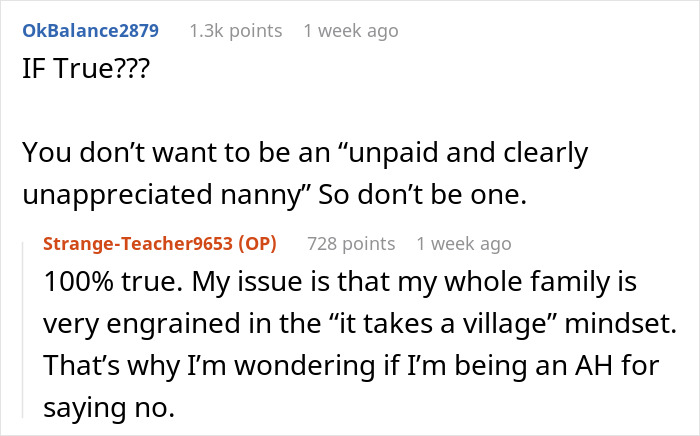
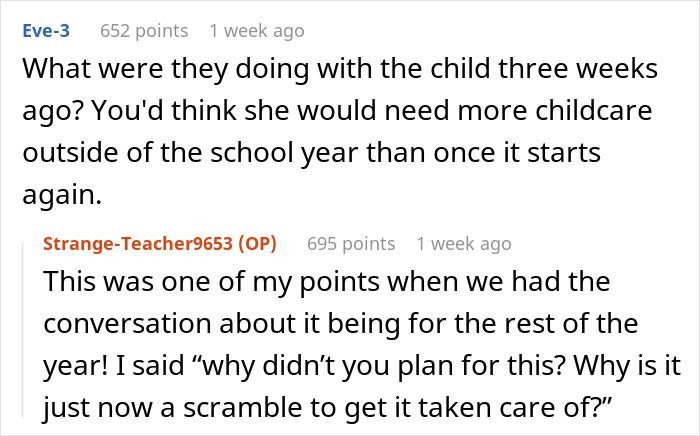
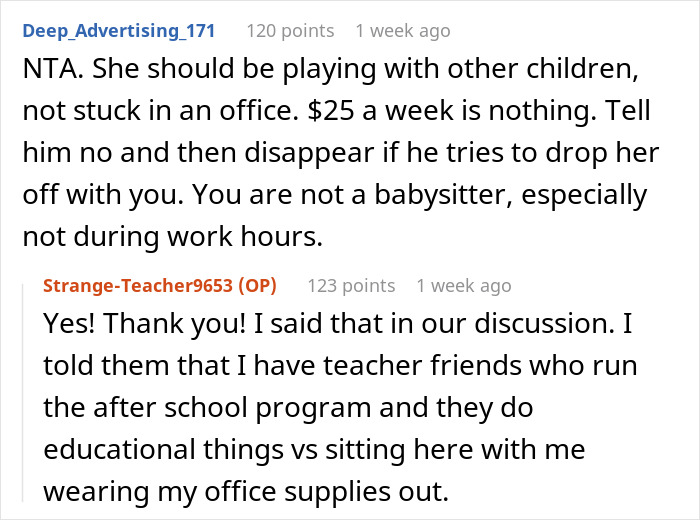
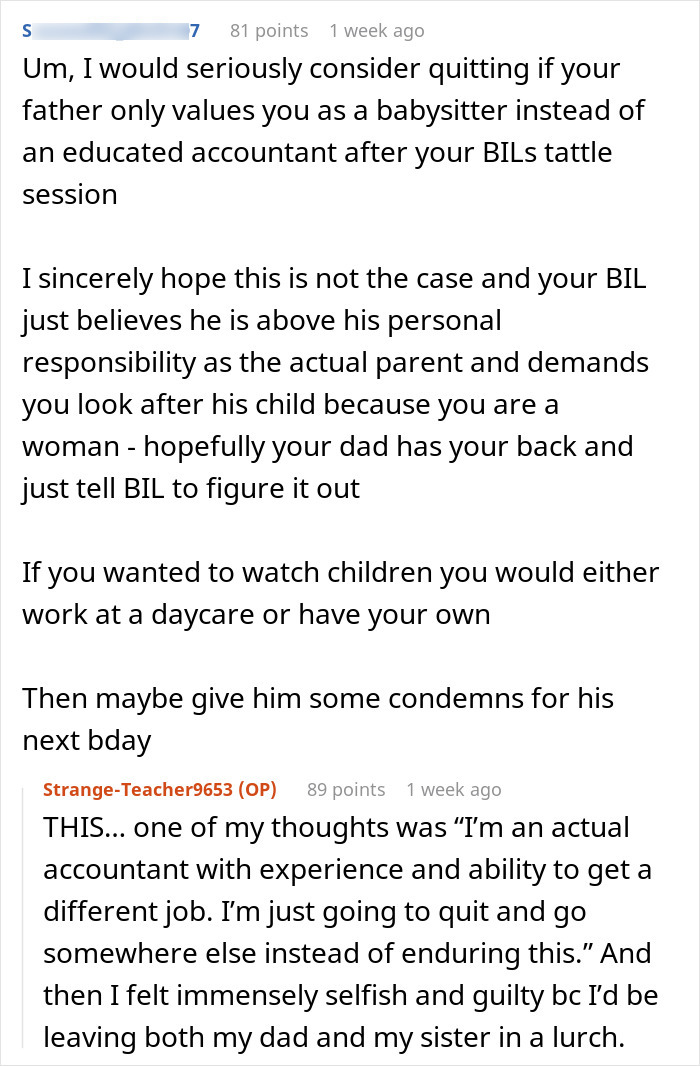


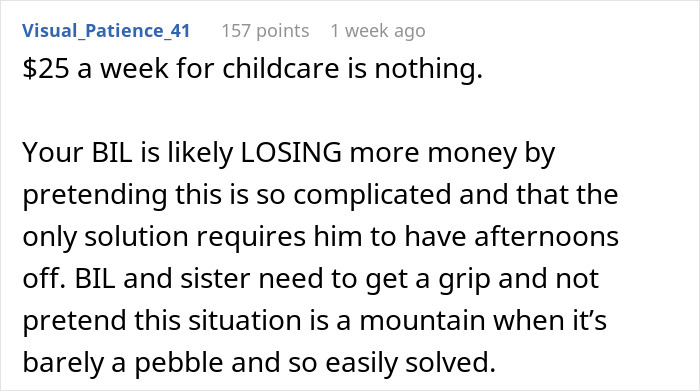


 Follow Us
Follow Us





